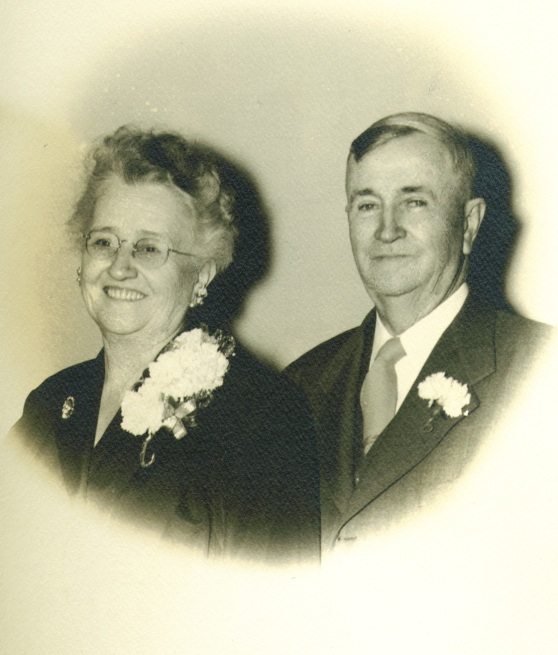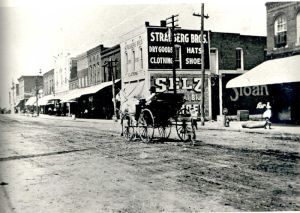
Edgar Luther Nelson and his wife Lula Mai (Blakemore)
Edgar Luther Nelson died in 1969 less than a week before his 86th birthday. In all those many years, he never lived more than 2 1/2 miles from the small town of Humboldt in Gibson County, western Tennessee. His was the fourth generation in west Tennessee; his grandfather and father had made only a small move from the adjacent Madison County to Gibson sometime after the Civil War. The western migration for this part of the Nelson family was clearly over after his great-grandfather John arrived in the early 1820s.
Edgar grew up amidst tragedy and the memory of tragedy in his immediate family. He had three brothers, but all died young: Henry as an infant and Benjamin as a 2-year old before Edgar was born, and then his elder brother Edwin at the age of 20 when Edgar was only 9. This sad event was followed only 2 years later by the death of his father, leaving just his mother and himself. His mother, Mary Ann (Barnett) Nelson, had lost her own father during the Civil War when she was only 15; hers was a life with too much grief.
Like his contemporary Charles Paysinger in another part of the family tree, Edgar’s life reflected the changing American economy. While his father and grandfathers were farmers, Edgar engaged in a variety of other occupations. Starting out as a store clerk, he eventually came to operate his own business selling agricultural supplies and equipment, while also dealing in real estate and participating in management of a local bank. The modern industrial economy was reducing the need for farm labor while at the same time providing many other options for earning income.

Downtown Humboldt, TN, in 1901, via Wikipedia
The town of Humboldt reached the centennial of its founding in 1966, and at 83 years of age Edgar was one of the few people still living in the community who had seen virtually the entirety of the town’s history. As a result, he was sought out for interviews by those curious to know what life was like back in the “good old days” – although he apparently was quick to tell his interviewers that those days were not so “good” and that he preferred the “good days of the present era.” Perhaps that is not a surprise given how much sorrow accompanied his early life. Whether the days were good or not, his recollections are still of interest to those who want to know something of his life and the place he lived. Two such articles are attached below.